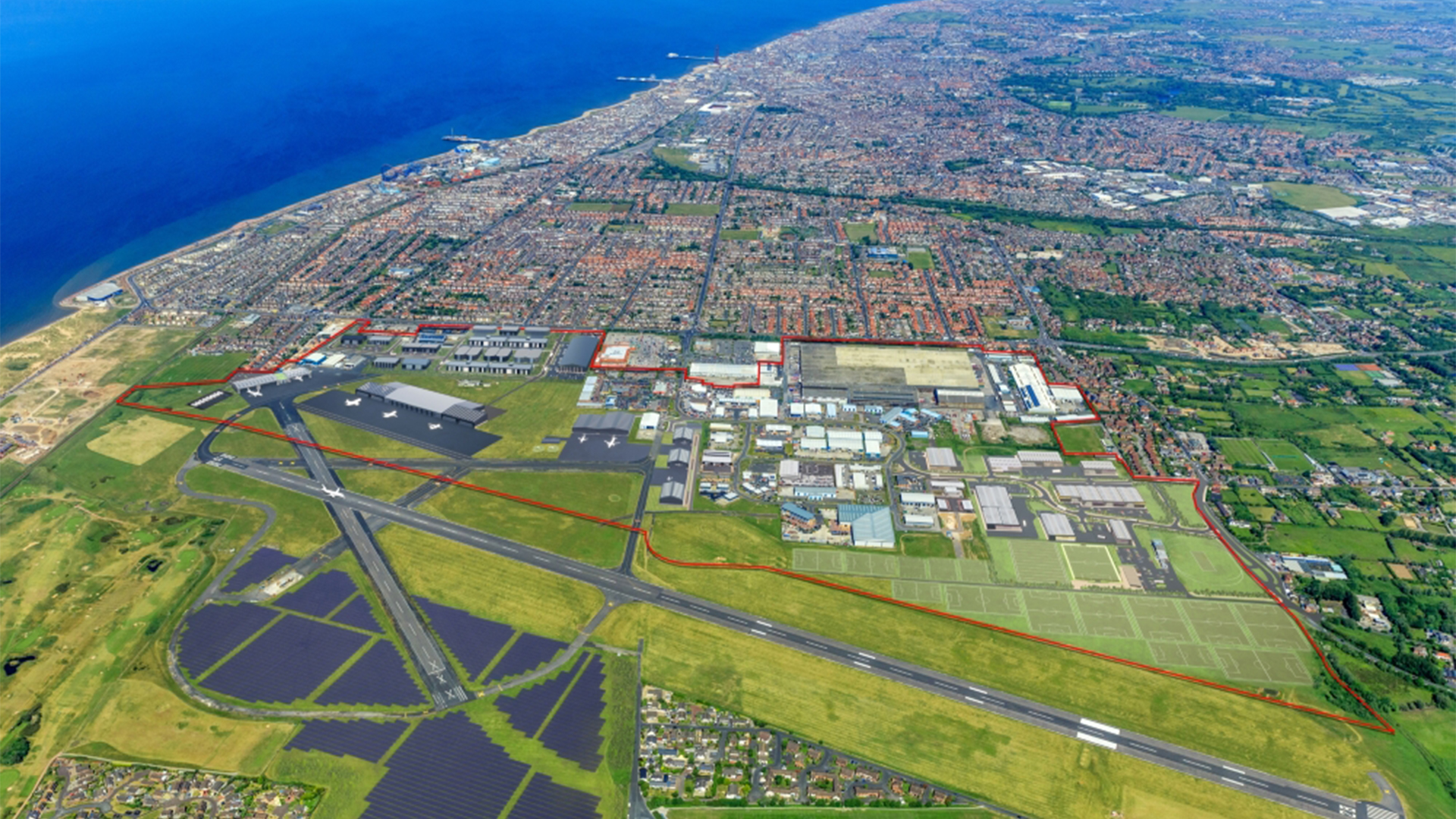Plans lodged for new Blackpool Airport solar farm to support data center campus
Blackpool Council says its proposed Silicon Sands development could bring high-quality jobs to the region


Proposals have been submitted for a 62-acre solar farm at Blackpool Airport, generating energy for council buildings, the airport itself, and a planned high-performance data center campus.
While Blackpool Council owns the airport, it sits within Fylde Council’s boundary for planning purposes, meaning that the plans need to be approved by the latter.
The initial screening application describes a 20.1 MW solar farm located south of the airport’s main runway that would be able to generate 18.7 million kWH of renewable electricity each year.
Expected to come into operation toward the end of the decade, it would consist of 36,500 photovoltaic panels and could cut its net electricity consumption by up to 75%.
The plans would see the closure of the airport’s second, smaller runway. However, Blackpool Council said this was used by just 4% of flights last year. It currently costs more to maintain than it generates in aeronautical and commercial revenue, and its future was already in doubt.
"This is an opportunity for the airport to make best use of the land by repurposing it so that it creates a revenue stream for the airport, while reducing our energy bills and supporting our ten-year plan to become more financially sustainable," said airport managing director Steve Peters.
"Runway 28/10, at 1,800 meters long provides good capability for a busy airport, which handles around 40,000 flight movements per year, and this move would support our wider plans to improve the airport even further in the coming years."
Get the ITPro daily newsletter
Sign up today and you will receive a free copy of our Future Focus 2025 report - the leading guidance on AI, cybersecurity and other IT challenges as per 700+ senior executives
As well as council buildings, the new solar farm would also support Silicon Sands, a high-performance data center campus planned for a site north of the current airfield.
Silicon Sands aims to create a series of renewably powered data centers to create quality jobs on the Fylde coast. The development would also aim to be carbon friendly, through the use of liquid immersion cooling and the reuse of the waste energy in a district heat network.
Meanwhile, Blackpool Council confirmed the power generated from the solar farm would also help equip Blackpool Airport to support the next generation of sustainable hybrid or electric battery powered aircraft.
RELATED WHITEPAPER

"Tackling the climate emergency is a major priority for Blackpool. The Council and its companies own a significant number of buildings and homes, as well as an airport, all of which are large energy consumers," said Jane Hugo, cabinet member for climate change at Blackpool Council.
"These solar farm proposals would allow us to generate our own green energy, reducing our carbon emissions and energy bills considerably. It will also help support our plans to grow the local economy, by providing green energy to data centers and businesses at Silicon Sands, as well as helping the airport to explore the next generation of sustainable aviation."
Emma Woollacott is a freelance journalist writing for publications including the BBC, Private Eye, Forbes, Raconteur and specialist technology titles.
-
 Bigger salaries, more burnout: Is the CISO role in crisis?
Bigger salaries, more burnout: Is the CISO role in crisis?In-depth CISOs are more stressed than ever before – but why is this and what can be done?
By Kate O'Flaherty Published
-
 Cheap cyber crime kits can be bought on the dark web for less than $25
Cheap cyber crime kits can be bought on the dark web for less than $25News Research from NordVPN shows phishing kits are now widely available on the dark web and via messaging apps like Telegram, and are often selling for less than $25.
By Emma Woollacott Published